Daniela & Nestor
Things To Do
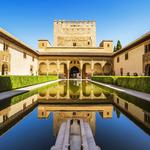
Alhambra
The second most visited site in Europe: this breathtaking palace-city is a sophisticated blend of medieval Islamic, Renaissance Christian and modern architectural styles. It was built during the 1200s and 1300s for the Nasrids, who ruled the the Emirate of Granada in the final centuries of Muslim control in Andalucia.
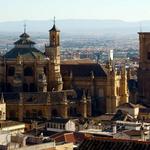
Catedral de Granada
The Chapel of the Catholic Kings was built as a burial site intimately linked to the Cathedral, but without merging with its architecture. It is built with a single nave, an octagonal presbytery preceded by bleachers, a transept with little development and a choir at its feet, for the functions of a pantheon. As a funeral chapel none, in Spain, it excels in size. In it you can appreciate both its simplicity and its wealth thanks to the generous endowment of the queen. The Royal Chapel houses the mortal remains of Don Fernando de Aragón and Dona Isabel de Castilla (who were initially resting in the convent of San Francisco de la Alhambra), as well as those of Dona Juana I, Don Felipe and Infante Miguel.
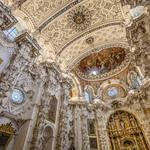
Monasterio de Nuestra Señora de la Asunción "La Cartuja"
The Monasterio de la Cartuja (officially known as 'Monasterio de Nuestra Señora de la Asunción') is a monastery located on a northern hill of Granada Spain. The monastery with a special interior in baroque style dates back to 1506, but was not completed in its current state until three centuries later. As a result, the monastery features both Gothic and Renaissance styles in the details and finishing.
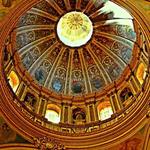
Basílica de San Juan de Dios
This church honours Saint John of God who founded an order with the sole purpose to give health care to the poor. The church is one of the most elaborate and even confusing examples of Baroque art culminating in the silver shrine guarding Saint John's remains.
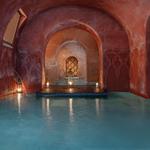
Hammam Al Ándalus
As in its origin, the Arab baths are made up three spaces created by water pools at different temperatures and which give their name to the hot, warm and cold rooms. Each client is free to choose their own route through these spaces while respecting our guidelines for use in order to enjoy an optimum experience of tradition.
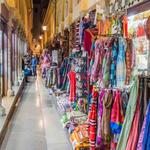
Camino de la Alcaicería
In the Islamic days this was the location for Granada’s Great Bazaar, where merchants would tout their silks and spices along several crisscrossing streets. Nowadays what’s left is a single passageway full of souvenir shops, some of which hold more interest than others.
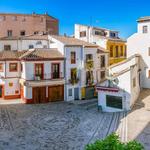
Albaicín
The Albayzin (or albaicin) is a must see part of Granada. It is an historical part of Granada reflecting its Medieval Moorish past of narrow winding stone streets filled with white walled houses. The Albayzin is on a steep hill on the next hill to the Alhambra from which there are wonderful views of the Alhambra with a backdrop of the snow covered peaks of the Sierra Nevada.
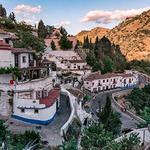
Sacromonte
A large hill located close to the Albayzín that is known for its caves that have been turned into public places for flamenco performances.
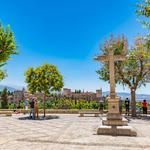
Plaza de San Nicolás
At the top of the Albayzín district is the church of San Nicolás, fronted by this square where one can enjoy the view of the Alhambra, set off by the vast peaks of the Sierra Nevada in the background. After walking to the summit of this hill you’ll probably be in need of a breather, so take a five on one of the benches, sit back and enjoy a panorama that has captivated people for centuries.
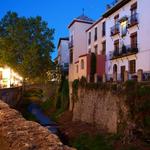
Carrera del Darro
Beneath the Albayzín district is this street that traces the course of the little River Darro as it flows through the city where the old walls would have been. It’s one of the most romantic walks, not just in Granada, but the entire country. The street can taper to just a couple of metres-wide in places, and all the while you’ll have views down to the river and lush vegetation on its banks. On the left are the renaissance buildings of the old city, many of which use stonework from original Moorish buildings. At one point you’ll pass the Puente del Cadí, the vestiges of an imposing Moorish bridge emerging from the Alhambra’s woodland.